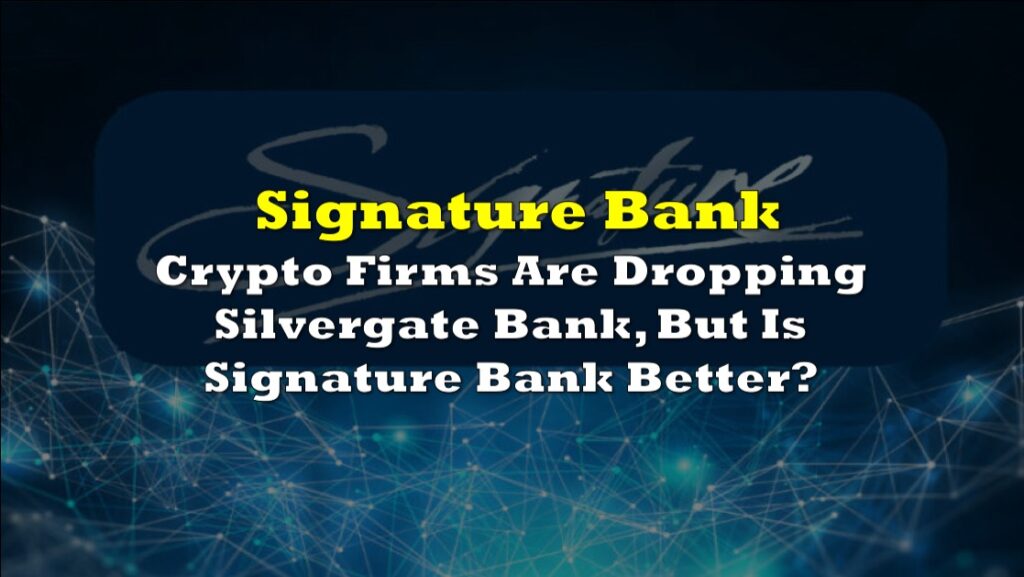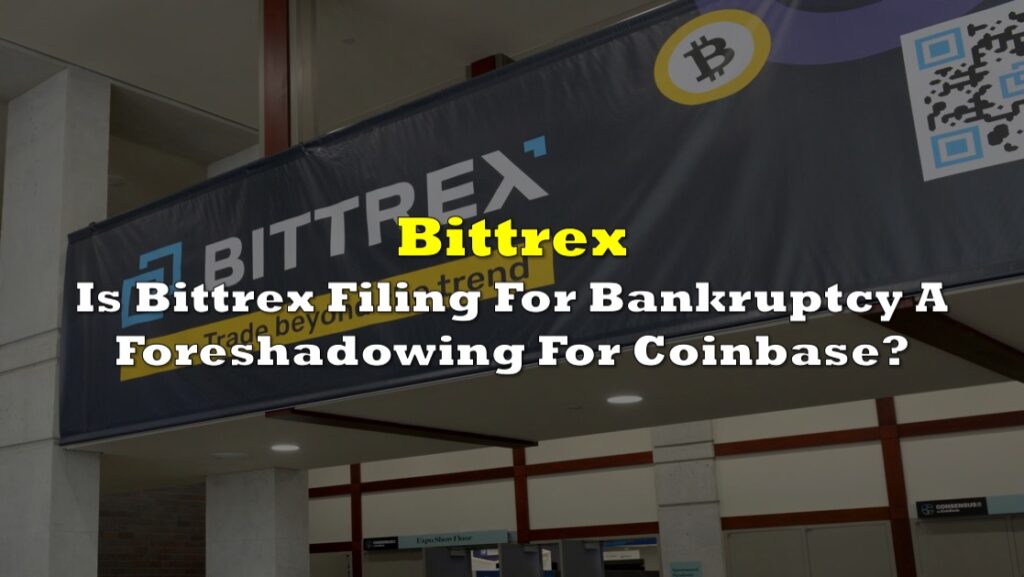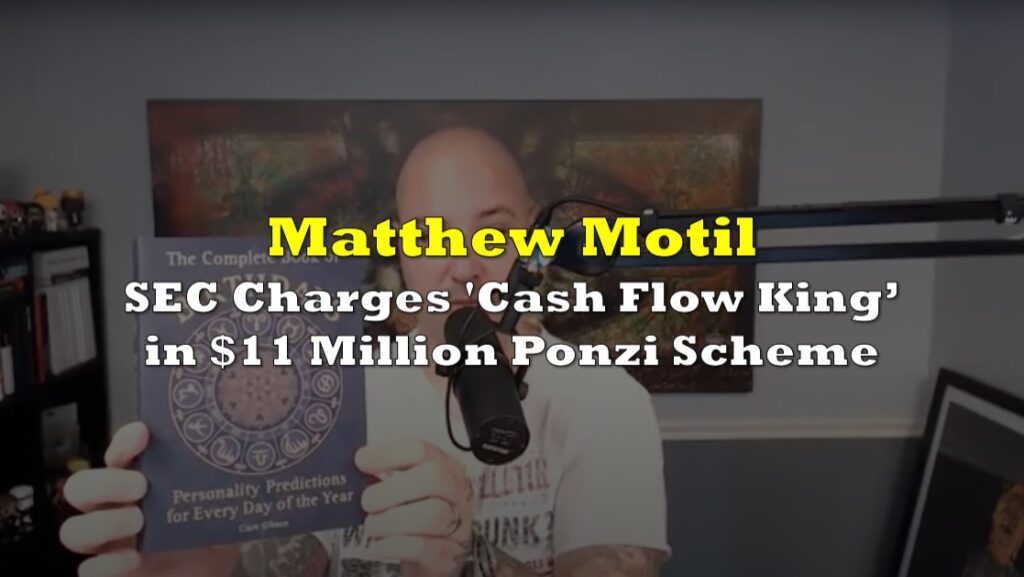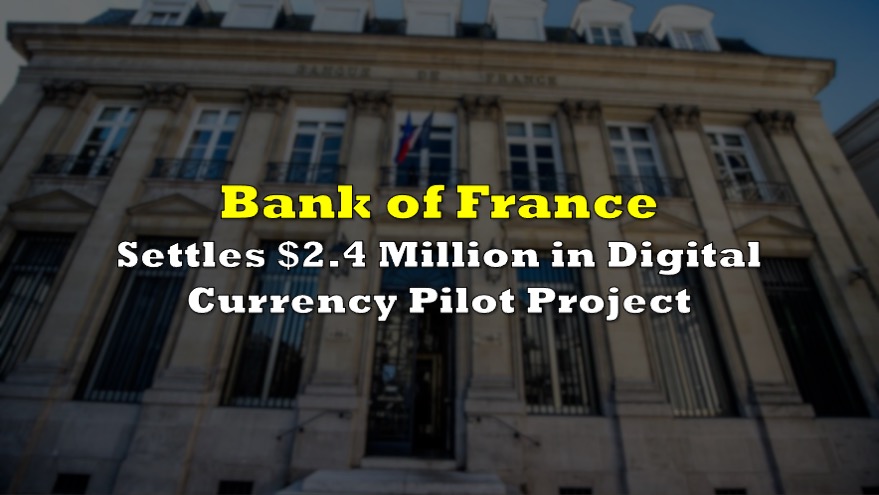With the catastrophic succession of the biggest bank failures in history, bitcoin maximalists are touting the digital asset’s advantages over fiat money.
The crashes sustained by banks like Silvergate, Silicon Valley, Signature, First Republic, and Credit Suisse are providing credence to the crumbling confidence in the banking system. Yes, the government is “rescuing” these banks to continue making customers whole, never mind that the government partly contributed to the liquidity issues of these banks with the continuing interest rate hikes. But if one has lost faith in the system and wants to move their investments to a more digital space, they’d be met with the intensifying crackdown on cryptocurrency waged by–you guessed it–the government, too.
We’re still waiting on the results of the bets issued by Balaji Srinivasan, former general partner at the venture capital firm Andreessen Horowitz, as he confidently called for dollar devaluation signified by a boost in bitcoin price up to $1 million a piece. However, he clarified that more than making a money, the stunt act was pointed at “getting innocents to Bitcoin,” which he described as a “global safe haven.”
However, those convinced to shore up their investments to crypto might be finding less and less options to look at as the Securities and Exchange Commission (SEC) goes on a “Wells notice” and regulatory lawsuit spree, forcing some of the crypto firms to close shop or withhold products from the market. The regulatory crackdown still stems from the lingering question of defining crypto as a security, and so the non-SEC-registered ones should be considered unregistered securities–and the sale of which is against the law.
Bottom of the Wells [notice]
Like a newly discovered superpower, the Wells notice has been a prominent tool for the SEC to keep crypto firms in line. A Wells notice is a letter sent by the SEC to individuals or businesses at the conclusion of an inquiry stating that the regulatory body intends to take enforcement action against them.
In what appears to be a first for the SEC, regulators took enforcement action against Paxos Trust earlier this year, accusing the crypto company of violating investor protection laws over its issuance of stablecoin Binance USD (BUSD), which regulators consider to be an unregistered security. The crypto firm vehemently disagrees with the agency’s characterization, saying BUSD is not a security under the federal securities laws.
“BUSD issued by Paxos is always backed 1:1 with US dollar-denominated reserves, fully segregated and held in bankruptcy remote accounts. We will engage with the SEC staff on this issue and are prepared to vigorously litigate if necessary,” the firm explained.
According to some sources, the SEC’s crackdown is just the beginning, with observers noting that this doesn’t seem like a stretch given recent actions by the SEC itself.
Unsubstantiated Twitter accusations originating with Fox Business’ Eleanor Terrett, stablecoin company Circle had also allegedly received a Wells notice urging the company cease and desist selling unregistered securities. However, Circle’s chief strategy officer Dante Disparte disputed this and Terrett had to issue a retraction.
SEC vs. Coinbase
Most recently, Coinbase is the latest crypto firm to get the infamous Wells notice, with the company saying the document “identified potential violations of securities law” but “does not provide a lot of information… to respond to.”
“Today, the SEC gave Coinbase a ‘Wells notice’ regarding an undefined portion of our listed digital assets, our staking service Coinbase Earn, Coinbase Prime, and Coinbase Wallet after a cursory investigation,” the company said in a blog post.
Staking is a procedure in which investors “stake” or lock up their crypto tokens with a blockchain validator so they can validate data blocks for new tokens. The blockchain validators then share the yield of new tokens with the investors.
The crypto firm has had a long-storied series of skirmishes with the SEC, with the firm lobbying the regulator to further define the characterization of each asset and install a clearer guideline on how these should be regulated, arguing that the legal precedents the regulatory body is basing its decisions on is relatively outdated.
Coinbase maintains that they are “right on the law, confident in the facts.”
“We are prepared for this disappointing development. We are confident in the legality of our assets and services, and if needed, we welcome a legal process to provide the clarity we have been advocating for and to demonstrate that the SEC simply has not been fair or reasonable when it comes to its engagement on digital assets,” the company added.
3/ While we understand that this is all part of the journey to reforming our financial system, we are right on the law, confident in the facts, and welcome the opportunity for Coinbase (and by extension the broader crypto community) to get before a court.
— Brian Armstrong (@brian_armstrong) March 22, 2023
This comes after Coinbase reported last month that the SEC has been conducting investigations into the firm, reportedly receiving “investigative subpoenas and requests” from the securities regulator. The investigation is reportedly related to a range of the services that Coinbase currently offers to clients, including “certain customer programs, operations, and existing and intended future products.” More specifically, the investigation includes the firms “processes for listing assets, the classification of certain listed assets, its staking programs, and its stablecoin and yield-generating products.”
While the crypto exchange is firm on its legal ground, its investors can’t be faulted for their confidence being shaken by these regulatory acts. If Ark Invest’s Cathie Wood herself–a self-viewed bull on so-called disruptive tech like bitcoin–is selling some of her Coinbase portfolio, it is sending a not-so confident message on shoring your investments in the crypto space.
Cathie? lmao pic.twitter.com/EpT88jFxhA
— Conks 🥷 (@concodanomics) March 22, 2023
However, this is not the first time Coinbase got a Wells notice from the SEC. Back in September 2021, the crypto exchange received a notice from the SEC, advising of potential legal action in the event that the company goes ahead with introducing a digital asset lending feature. The new product, called Lend, would allow users to earn yield on certain digital assets using the platform.
Since announcing the new feature, Coinbase amassed a waitlist of interested customers; but, in response, the SEC declared that such a product would be categorized as a security, and subsequently opened a formal probe into the crypto exchange while issuing subpoenas demanding additional information.
“They refuse to tell us why they think it’s a security, and instead subpoena a bunch of records from us (we comply), demand testimony from our employees (we comply), and then tell us they will be suing us if we proceed to launch, with zero explanation as to why,” explained Coinbase CEO Brian Armstrong via a series of Twitter posts.
It turns out that the initial Wells notice was received by the firm days earlier before they announced it, as per filings by the company.
Notably, a number of insiders conducted share sale transactions between September 1 (the day it was handed out), and the filing of the 8-K reporting the notice. In total, four members of the executive management team conducted transactions in this time frame, with three of the individuals having those transactions take place on September 1. Naturally, it’s unclear if the notice had been viewed at the time of these transactions, but regardless the actions are questionable.
True to its pattern, Coinbase fell 14% on the day following the news of this second Wells notice.
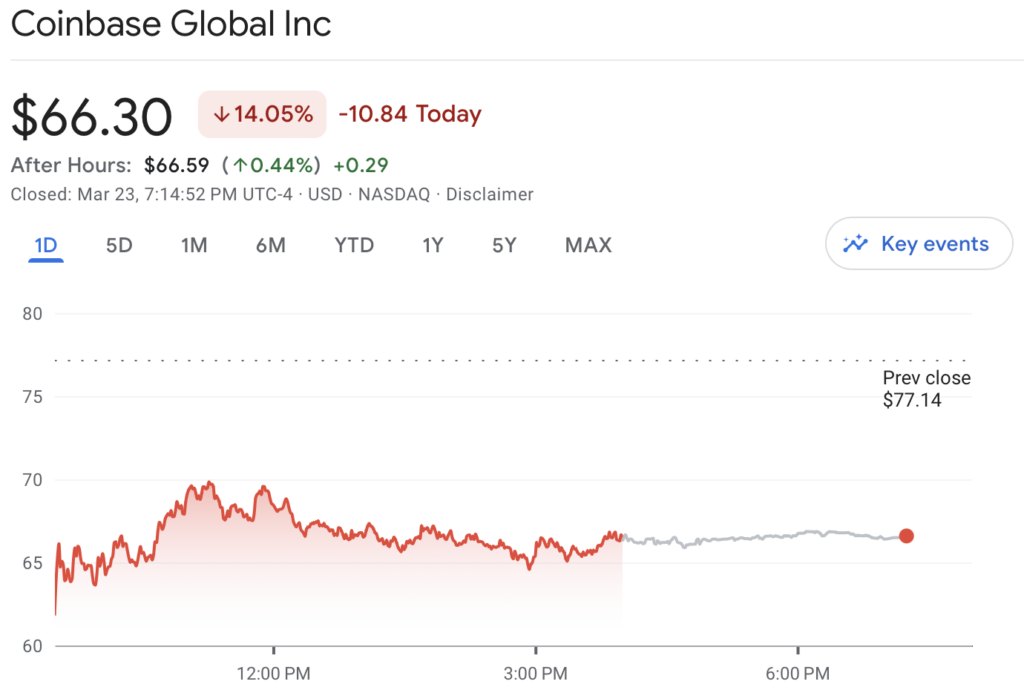
Crypto crackdown
Beyond the Wells notices, the SEC has intensified its clamp down on the crypto space. Just like the regulator’s concerns with Coinbase related to its staking programs, it has recently charged crypto exchange Kraken with failing to register the offer and sale of their crypto asset staking-as-a-service scheme.
In a nutshell, SEC Chair Gary Gensler describes staking-as-a-service as the process of transferring an investor’s token to a provider–at which point, they take control of the token and possibly pool them–in exchange for the promised return.
“When a company or platform offers you these kinds of returns… that relationship should come with the protections of the federal securities laws,” Gensler added. “That means you, the investor, should receive disclosures.”
While not commenting directly on Kraken’s issue, Armstrong defended staking programs, adding that “staking is not a security.”
“Staking is a really important innovation in crypto. It allows users to participate directly in running open crypto networks. Staking brings many positive improvements to the space, including scalability, increased security, and reduced carbon footprints,” Armstrong wrote in a tweet.
He went on to say that “regulation by enforcement doesn’t work” and merely encourages corporations to operate abroad, as bankrupt crypto exchange FTX did.
The US has a strong history of fostering innovation, and regulators have played a key role by establishing clear rules and pursuing bad actors. We hope the US will take a more constructive approach to collaborating with innovators while protecting consumers.
— cdixon.eth (@cdixon) March 22, 2023
On this particular SEC decision to charge Kraken, Gensler’s fellow Commissioner Hester Peirce disagrees, adding that she instead wanted to focus on “the more fundamental question” of whether registration would have even been possible, not just if the product is a security or not.
Peirce called the move “a paternalistic and lazy regulator [settling] on a solution… [to] just shut it down,” instead of initiating a public process “to develop a workable registration process that provides valuable information to investors.”
“More transparency around crypto-staking programs like Kraken’s might well be a good thing,” she said. “However, whether we need a uniform regulatory solution and if that regulatory solution is best provided by a regulator that is hostile to crypto, in the form of an enforcement action, is less clear.”
Beyond Paxos, Coinbase, and Kraken, the SEC has also focused its regulatory power on other crypto firms supposedly offering “unregistered securities” through its crypto products. In the middle of its own spat to demand making its customers whole following the insolvency caused by FTX bankruptcy, Digital Currency Group (DCG) and Gemini were both charged by the SEC for “the unregistered offer and sale of securities to retail investors through the Gemini Earn crypto asset lending program.”
The two companies were linked through Earn, a nearly two-year-old Gemini product that advertised returns of up to 8% on consumer deposits. With Earn, Gemini loaned client money to Genesis for placement across various crypto trading desks and borrowers.
Gemini co-founder Tyler Winklevoss frowned upon the SEC’s move, saying the regulatory body’s behavior “is totally counterproductive.” The crypto executive reiterated that the Earn program was regulated by the New York State Department of Financial Services and the firm has been “in discussions with the SEC about the Earn program for more than 17 months.”
“Despite these ongoing conversations, the SEC chose to announce their lawsuit to the press before notifying us. Super lame,” Winklevoss tweeted.
Winklevoss added that the Earn program has been shut down “for almost two months,” further asking “what is the point [for] urgency here?” According to a source, Gemini has also terminated the Master Loan Agreement (MLA) with Genesis, effectively stopping the Earn Program and “requires Genesis to return all assets outstanding in the program.”
Even Ethereum’s software update last year to a staking model earned the SEC’s attention, with Gensler commenting on how “staking” coins through a proof-of-stake (PoS) model might be considered as an investment that anticipates profits–essentially making it a security under the legal precedent Howey test.
Ethereum’s update to a staking model, dubbed as Merge, merges the blockchain’s PoS Beacon Chain with the existing Ethereum Mainnet. Compared to a proof-of-work (PoW) model, PoS validates coins by leveraging on already existing tokens—the factor that could be considered as an investment for future expected return.
“From the coin’s perspective…that’s another indicia that under the Howey test, the investing public is anticipating profits based on the efforts of others,” Gensler said, adding that if a platform offers staking services to its customers, it “looks very similar—with some changes of labeling—to lending.”
Crypto celebrity crackdown
It would be amiss to note, however, that the SEC has also been zeroing on crypto firms that are purportedly committing fraud. Currently, the regulator and law enforcement agencies are working on the biggest crypto fraud case against FTX founder Sam Bankman-Fried.
Earlier this year, the agency also charged Terraform Labs and its CEO Do Hyeong Kwon with plotting a multi-billion dollar crypto asset securities scheme using an algorithmic stablecoin and other crypto asset securities.
According to the SEC complaint, Terraform and Kwon raised billions of dollars from investors between April 2018 and May 2022 by marketing and selling an interconnected suite of crypto asset instruments, many in unregistered transactions.
More recently, the SEC focused its attention on BKCoin Management, a Miami-based financial manager, filing an emergency action against the firm and one of its principals, Kevin Kang, “in connection with a crypto asset fraud scheme.”
According to the complaint, BKCoin received roughly $100 million from at least 55 investors from October 2018 to September 2022 to invest in crypto assets, but BKCoin and Kang instead utilized some of the money “to make Ponzi-like payments and for personal use.”
Back in August, the regulatory body charged 11 individuals for their roles in creating and promoting Forsage–described by the SEC as a crypto pyramid scheme that raised around US$300 million from its investors.
The SEC charged the four founders of Forsage, which is understandable, but it also charged three US-based promoters and four members of so-called promotional group Crypto Crusaders who promoted Forsage on their respective platforms.
Despite cease and desist orders from the agency’s counterparts in the Philippines back in September 2020 and in the state of Montana back in March 2021, Forsage still continued to promote the alleged scheme despite these regulatory bodies deeming the operation as fraud.
So now, the regulatory might doesn’t just end anymore with the crypto firms alone. Personalities promoting the crypto assets–which the SEC still maintains as unregistered securities and therefore illegal to sell without license–are now fair game.
For instance, NFL quarterback Tom Brady, NBA stars Stephen Curry and Shaquille O’Neal, supermodel Gisele Bundchen, comedian Larry David and a few others are under investigation by the Texas State Securities Board over the payments they received for endorsing the failed FTX crypto exchange. They have also been named, along with Bankman-Fried, in a class-action lawsuit from investors.
Meet Kevin, BitBoy Crypto, and other slew of YouTubers have also been charged by the SEC for playing “a major role in the FTX disaster” as influencers promoting the platform.
“In fact, FTX could not have arisen to such great heights without the massive impact of these influencers, who hyped the deceptive FTX platform for undisclosed payments ranging from tens of thousands of dollars to multimillion dollar bribes,” the SEC complaint read.
On a related note, celebrity Kim Kardashian has agreed to settle with the Securities and Exchange Commission a case involving her unlawfully touting a crypto asset on social media without disclosing she was paid to promote such. Without admission, the American socialite paid $1.26 million to the regulatory body.
The anti-touting violation that Kardashian allegedly committed relates to her social media post promoting EMAX tokens, the crypto asset security being offered by EthereumMax. She failed to disclosed that she was paid $250,000–putting her penalty payment at 5x the amount she was paid–to post the promotion on her Instagram account, as federal security laws require any individual to inform such compensation in exchange for publicity.
“This case is a reminder that, when celebrities or influencers endorse investment opportunities, including crypto asset securities, it doesn’t mean that those investment products are right for all investors,” said Gensler.
And just this week, the SEC charged Justin Sun and his firms BitTorrent, Rainberry and the Tron Foundation for the unregistered offer and sale of crypto asset securities. But the regulatory body also charged the celebrities with illegally promoting the supposedly unregistered Tronix (TRX) and BitTorrent (BTT) coins without disclosing they were compensated.
The SEC concurrently filed a complaint against Lindsay Lohan, Jake Paul, Soulja Boy, Austin Mahone, Kendra Lust, Lil Yachty, Ne-Yo and Akon.
“Sun paid celebrities with millions of social media followers to tout the unregistered offerings, while specifically directing that they not disclose their compensation. This is the very conduct that the federal securities laws were designed to protect against regardless of the labels Sun and others used,” said Gurbir Grewal, Director of the Division of Enforcement for the SEC.
Can we get some clarity here?
The SEC’s main argument is these crypto assets are acting like securities and must be regulated as such–unregistered ones should be considered illegal to offer and promote.
But coming in late to the game, the regulatory body is now enforcing the law without addressing the focal point to guide the space: what makes a crypto asset a security?
In March 2022, the US Securities and Exchange Commission put forth a guideline requiring public companies that hold crypto assets on behalf of its investors to account for them as liabilities on their balance sheets due to their technological, legal and regulatory risks.
The accounting requirement would prove to be a capital-intensive move for banks since their industry has rules pertaining to achieving a level of liquidity commensurate of its balance sheet liabilities. Lenders creating crypto offerings had “to cease moving forward with those plans pending any kind of further action from the SEC and the banking regulatory agencies.”
Last year, the SEC and the Commodity Futures Trading Commission reportedly put forward a proposal to require hedge funds to report their bets, including exposure to cryptocurrency. Meanwhile, the US Federal Reserve released an additional set of guidelines for banks that plan to conduct cryptocurrency activities, requiring the financial institutions to notify them of the act before it transpires.
And back in December at the height of the FTX brouhaha and the following ‘cryptoclasm’, the SEC pushed corporations to clarify their exposure to distressed crypto entities in a new guidance, requiring companies that issue securities to disclose to investors their exposure and risk to the cryptocurrency market.
The move comes after Gensler defended the agency against accusations that it has failed to prevent crypto firms from misusing customer funds–stemming from the implosion of one of the world’s largest cryptocurrency exchanges, FTX.
Companies may have disclosure obligations related to the direct or indirect impact that recent crypto bankruptcies may have had on their businesses, the SEC relayed. It provided a sample list of questions that agency staff may ask specific issuers based on their circumstances.
The sample questionnaire “contains sample comments that the Division may issue to companies depending on their particular facts and circumstances.”
Some of the SEC’s inquiries focused on the counterparty risk that public firms may have to crypto market participants who have declared bankruptcy, incurred massive redemptions, or suspended consumer withdrawals.
“We note that you own or have issued crypto assets and/or hold crypto assets on behalf of third parties,” one of the sample questions said. “Explain whether these crypto assets serve as collateral for any loan, margin, rehypothecation or other similar activities to which you or your affiliates are a party.”
Many publicly traded companies have little or no exposure to cryptocurrencies, which have largely been excluded from the traditional financial system. However, a small number of companies have their businesses somewhat tied to crypto assets; among them are Coinbase, bitcoin miner Marathon Digital, and the now-failed bank Silvergate.
However, it seems even if the focal point of defining how a crypto asset becomes a security can be addressed, registration with the regulatory agency proves to be another hurdle. Coinbase, which said it met with the SEC more than 30 times over nine months, is discussing potential registration models for the exchange, and others in the crypto space. The SEC “ultimately refused to respond.”
“The SEC will not let crypto companies ‘come in and register’ – we tried,” said Coinbase in a recent blog post.
During the SEC investigation prior to the Wells notice, Coinbase said the agency asked them if they would be “interested in discussing a potential resolution that would include registering some portion of [the] business with the SEC.” Coinbase said yes, specifically responding to the SEC’s request “to provide [their] views on what a registration path for Coinbase could look like – because there is no existing way for a crypto exchange to register.”
“We developed and proposed two different registration models. We spent millions of dollars on legal support to build these proposals and repeatedly asked for the SEC’s feedback. We got none. We also reiterated that we stand by our listings process – we don’t list securities today – and repeatedly invited the SEC to raise any questions about any asset at all on our platform. They raised none,” they wrote.
When CB filed to go public in 2021, our S1 described our business in much detail, including 57 references to staking and details on our asset listing process. The SEC approved us to go public, knowing those details. Now they have changed their mind on what is allowed. 3/15
— paulgrewal.eth (@iampaulgrewal) March 22, 2023
Is the crackdown working?
For the sake of the argument that the SEC is really protecting investors and is doing all these regulatory actions to weed the bad apples from safe investment options, so far only a handful have really been brought to justice. Earlier this year, the US government arrested Anatoly Legkodymov, a Russian national and co-founder of Bitzlato, a Hong Kong-based crypto exchange, on suspicion of facilitating the transfer of criminal funds.
The unsealed complaint accuses Bitzlato of running a money-transfer firm that facilitated illicit fund flows for reasons such as money-laundering, totaling more than $700 million in revenues for a range of cyber criminals.
Amid a very tenuous crypto industry marred by complaints of fraud and bankruptcies, an arrest of another crypto exchange founder following Bankman-Fried would be expected to hit the digital finance space hard.
But apparently, no one has heard of Bitzlato.
Even in its ongoing legal skirmishes with crypto firms, the SEC can’t catch a break. This month, the bankruptcy court handling Voyager Digital’s case approved the pending sale of its assets to Binance.US in a deal valued at $1.3 billion–something the regulatory body has been opposing.
A US federal appellate court judge also recently questioned whether the SEC was correct to deny Grayscale Investment’s application for a spot bitcoin exchange-traded fund, given that the agency has previously approved bitcoin futures products.
Further more, a New York district judge struck from the record SEC’s expert witnesses in its case against Ripple, siding with the defendant’s argument that the opinion of an SEC’s expert on what a reasonable XRP–Ripple’s digital asset–purchaser believed should be “excluded because he lacks a reliable methodology to support his opinion.”
What the crackdown did is shake the confidence in the crypto space, pushing investors to pull their money out and cause runs that would eventually lead to insolvency and bankruptcy.
While crypto as a nascent industry is getting it hard from the regulatory agencies, banks have also recently suffered from some of the largest bank failures in history. In what seems to be an ironic parallelism, banks are suffering losses from the increasing interest rate hikes imposed by the government to tame down the rising inflation rate.
Like crypto–which runs on trust–banks reporting these losses and liquidity concerns have also seen runs as massive amounts of customer deposits have been pulled out in a display of eroding confidence in the banking system.
Coinbase pulled out of Silvergate Bank as its service provider after the latter indicated it is less than well-capitalized, with many following suit. The crypto exchange then said it is shifting to Signature Bank, but that decision did not age well.
Now, the eroding confidence contagion spread to Silicon Valley Bank, becoming the largest bank since 2008 to collapse, fueling widespread uncertainty about ripple effects on the US banking industry. The big picture: the bank was the country’s 16th largest bank and a leading financial institution for technology and life sciences companies.
The argument before was these banks are tied to crypto and so-called “woke policies”; therefore, the collapse is contained among these banks. But as financial institutions run on trust, it was inevitable for the contagion to spread to a more established bank like Credit Suisse. Unlike Silicon Valley Bank, a mid-tier bank, Credit Suisse is a financial behemoth – big enough that it is among 30 banks considered to be of systemic importance to the global economy.
Now, following Credit Suisse’s run, rival UBS agreed to buy the bank in a Swiss National Bank-endorsed $3.2-billion deal.
The Swiss bank has a significantly larger scope and potential impact on the global economy than smaller banks in the United States, putting pressure on Swiss regulators to find a method to merge the country’s two largest financial companies. Credit Suisse’s balance sheet, at over 530 billion Swiss francs as of the end of 2022, is roughly double the size of Lehman Brothers’ when it failed. It is also significantly more globally networked, with many international subsidiaries, making Credit Suisse’s predicament even more critical.
Credit Suisse lost over 38% of its deposits in the fourth quarter of 2022, and the bank acknowledged in its delayed annual report released earlier this week that the outflows had yet to reverse. It announced a 7.3 billion Swiss franc net loss for 2022 and expects another “substantial” loss in 2023.
While the deal aims to rebuild trust in the banks, the hastily arranged acquisition could introduce even more unwanted uncertainty into the international banking system. The Swiss financial regulator FINMA, which arranged the deal, called for the complete write-off of $17 billion of Credit Suisse’s additional tier 1 (AT1) bonds.
At the same time, Credit Suisse’s equity holders, who are junior to the AT1 bonds in the financial firm’s capital structure — meaning they should receive nothing unless all senior obligations are paid — will recover $3 billion of value.
The contagion reverberates back to crypto firms depending on these banks as their service providers. While Kraken, following its own skirmish with the SEC, stuck with Silvergate Bank, it recently announced it will cease automatic clearinghouse deposits and withdrawals on March 27, as the business searches for a new banking partner.
Many bank depositors, only now hanging onto the promise of being compensated through deposit insurance, are seeing through the cracks of how the government failed to see the failures happening with the legislation and regulation they impose on the space–much like how it does with the nascent crypto industry.
In the end, investors are going to be left with limited options to shore their investments into. But what with all the craziness happening in the banking and crypto sector, who knows if those limited options won’t also fail.
Information for this briefing was found via the sources mentioned. The author has no securities or affiliations related to this organization. Not a recommendation to buy or sell. Always do additional research and consult a professional before purchasing a security. The author holds no licenses.





